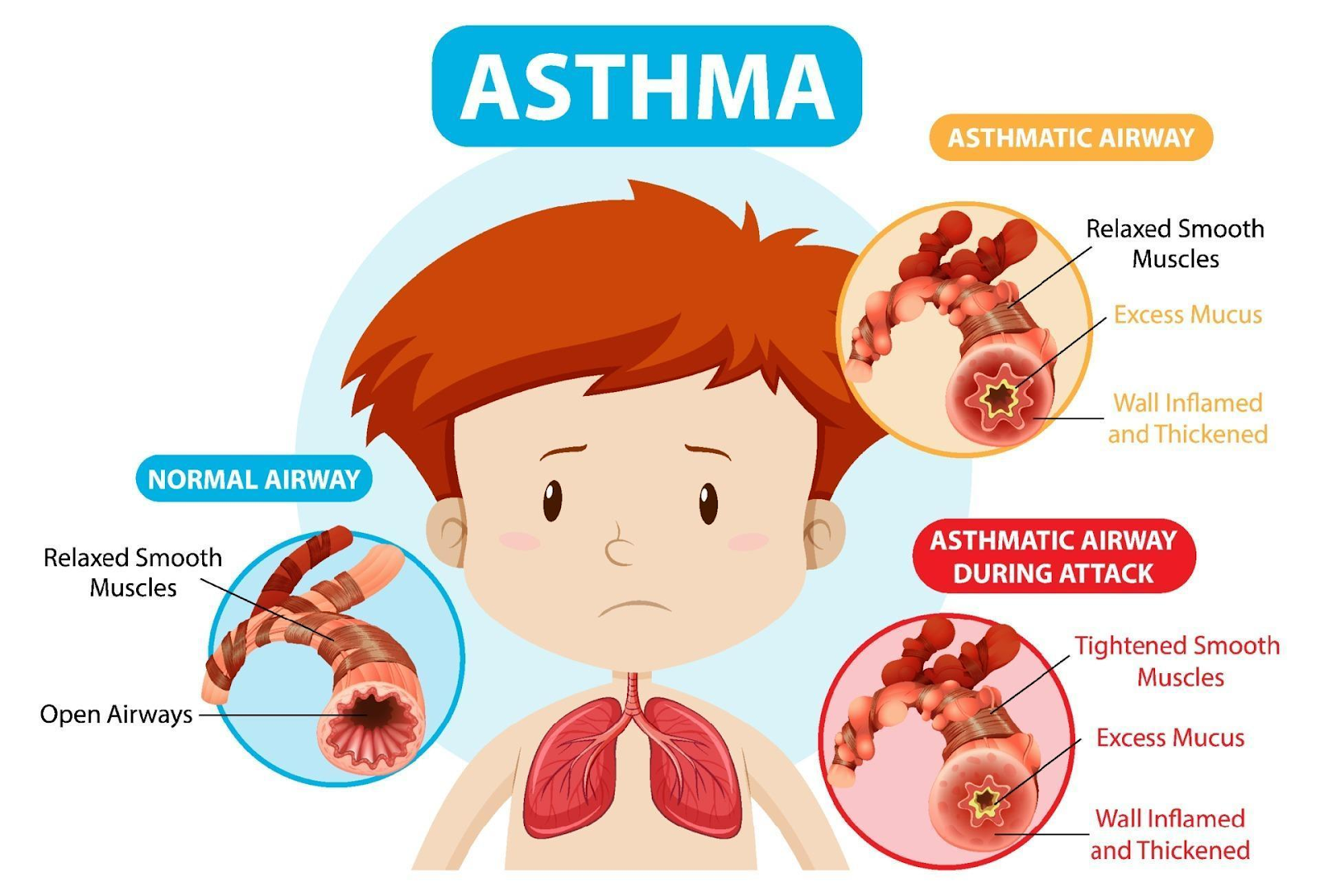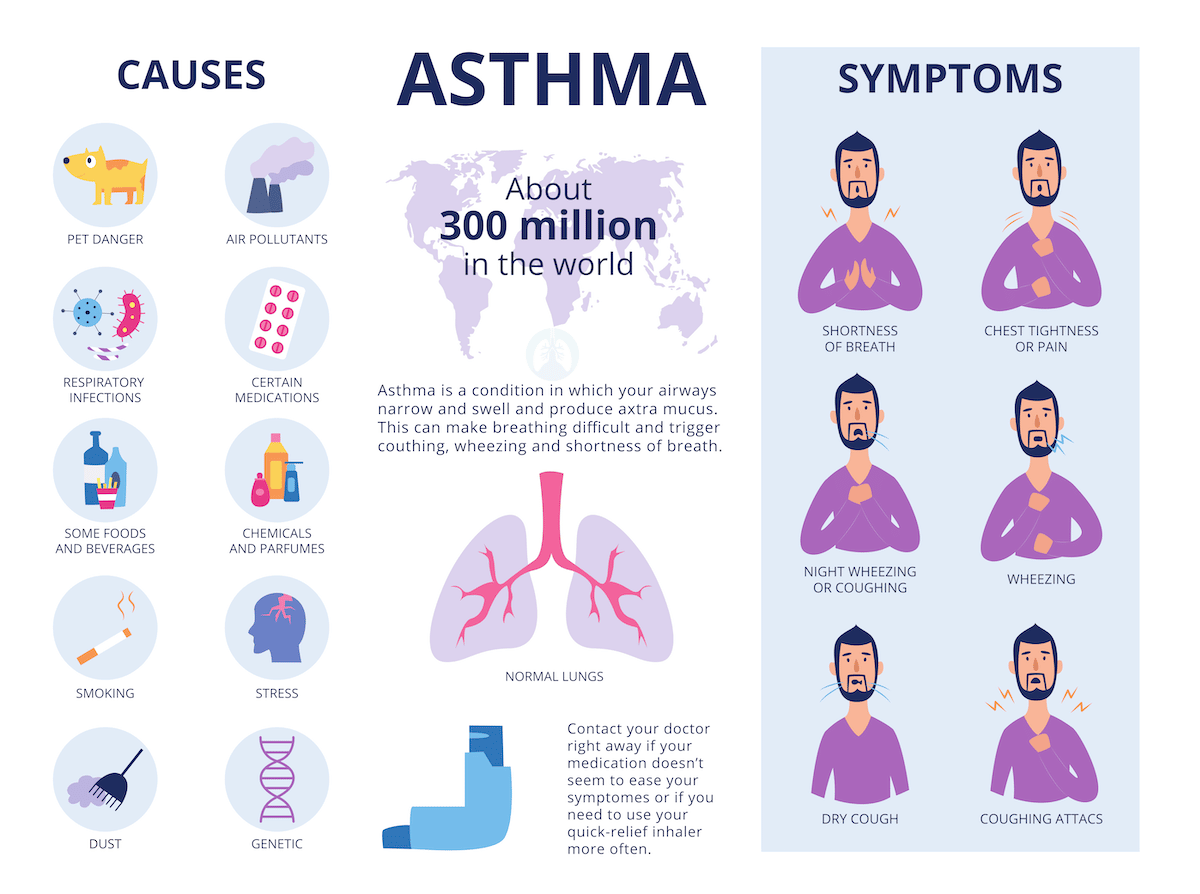Asthma: A Breath of Fresh Understanding
Imagine struggling to breathe, feeling like you're trying to inhale through a straw. This is the reality for millions living with asthma. Let's dive into this common yet complex condition, exploring its causes, symptoms, and the latest breakthroughs in treatment.
Asthma: A Breath of Fresh Understanding
What is Bronchial Asthma?
Bronchial asthma (commonly known as asthma) is a chronic respiratory disease characterized by inflammation of the airways. When exposed to triggering factors, the patient's airways, which are highly sensitive, react aggressively, leading to symptoms such as shortness of breath, wheezing, chest tightness, and coughing. The severity of asthma attacks varies depending on the level of airway stimulation and the individual patient's condition.

Asthma is generally not curable, but its symptoms can be controlled with proper treatment adherence.
The Air We Breathe: Causes and Triggers
Asthma, like a temperamental friend, can be set off by various factors. Common triggers include:
-
Allergens: Dust mites, pollen, and pet dander
-
Irritants: Smoke, strong odors, and air pollution
-
Physical activity: Exercise-induced asthma
-
Stress and strong emotions: Yes, even laughter can trigger an attack!
-
Infections: Respiratory infections like sinusitis, rhinitis, pharyngitis
-
Medications: Aspirin, penicillin, certain anti-inflammatories
-
Genetics: Family history of asthma
🔍 Did you know? Recent research suggests that environmental factors play a larger role in asthma development than previously thought. Urban living, in particular, has been linked to higher asthma rates.

When Breathing Becomes a Battle: Symptoms and Diagnosis
Recognizing asthma symptoms is crucial for early intervention. Watch out for:
-
Wheezing: A whistling sound when breathing
-
Shortness of breath
-
Chest tightness
-
Persistent coughing, especially at night
Doctors use various tools to diagnose asthma, including:
-
Spirometry tests
-
Peak flow measurements
-
Allergy testing
Breathing Easier: Treatment Options
While there's no cure for asthma, modern medicine offers several ways to manage symptoms effectively:
-
Inhaled corticosteroids: Long-term control medications
-
Quick-relief inhalers: For sudden symptoms
-
Leukotriene modifiers: Oral medications to prevent symptoms
-
Biologics: Innovative therapies for severe asthma
Exciting developments in asthma treatment include:
-
Smart inhalers with built-in sensors
-
Personalized medicine approaches based on genetic profiles
Living Your Best Life with Asthma
Asthma doesn't have to hold you back! Here are some tips for thriving:
-
Know your triggers: Keep a symptom diary to identify patterns
-
Create an asthma action plan: Work with your doctor to develop a strategy for managing symptoms
-
Stay active: Regular exercise can improve lung function
-
Keep your environment clean: Reduce exposure to allergens and irritants
Remember, you're not alone in this journey. Connect with others living with asthma for support and shared experiences.
If you have bronchial asthma, make sure your health care provider shows you how to use the inhalers properly. Be sure to keep your rescue inhaler with you in case of an asthma attack or asthma emergency. While there is no asthma cure yet, there are excellent asthma medications that can help with preventing asthma symptoms. Asthma support groups are also available to help you better cope with your asthma.
